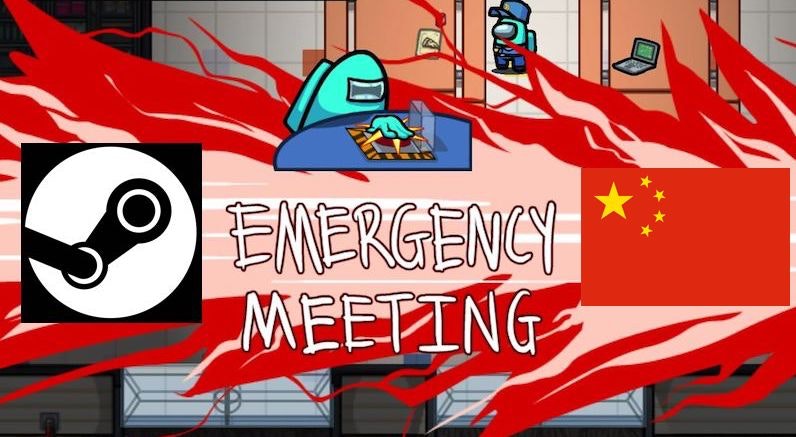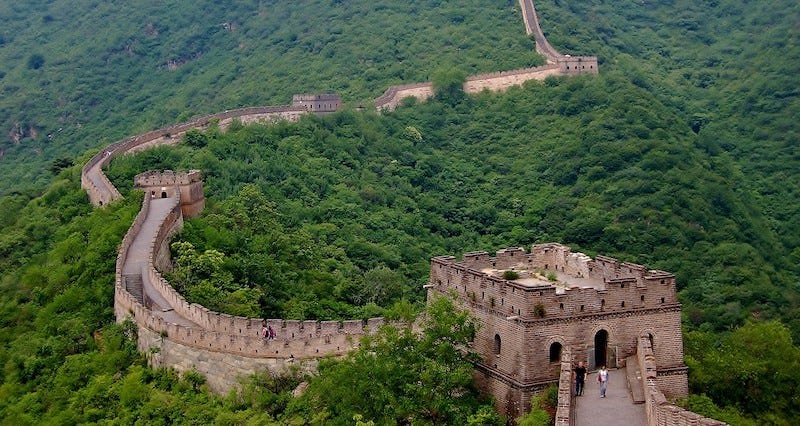
Featured Blog | This community-written post highlights the best of what the game industry has to offer. Read more like it on the Game Developer Blogs or learn how to Submit Your Own Blog Post
Holiday special: did Steam really just get banned in China?
No - but it's complicated.

[The GameDiscoverCo game discovery newsletter is written by ‘how people find your game’ expert & GameDiscoverCo founder Simon Carless, and is a regular look at how people discover and buy video games in the 2020s.]
Well, we weren’t meant to be back into your inboxes until January 3rd, 2022. It’ll be a whole new year! But we’re sending a special holiday bonus newsletter because something kinda important happened - on Christmas Day, of all days.
So - it appears that the Chinese government’s attitude to Steam’s global service has changed. And before you read on with consternation - no, Steam is not straight-out banned in China, as some early headlines had it.
But it’s also not a ‘DNS poisoning attack’ from third parties, we’re reasonably sure. And it’s not NOT a big deal. It’s just… a thing. So let’s have a quick look at what’s transpired so far. (With the caveat that it could change again at any time!)
Steam in China: what on earth happened?
So, early on the morning of December 25th, U.S. time, it became clear that Chinese users were having a tough time connecting to (global) Steam’s website. This info quickly spread, and led to Western game editorial sites running stories like ‘Steam has been banned in China’.
But all the while, as Western devs logged on for the day and checked their Steam stats, they saw that people located in China were still buying copies of their games. And Steam devs in China reported they could still upload builds of their games without any issue.
And, indeed, users in China using the Steam client were still able to use it as normal. So we got to Tweets proclaiming that ‘Steam is not banned in China’ - which is somewhat more true than ‘Steam is banned’. But not the whole story.
You can see the issue here from this video that a Chinese user just uploaded to YouTube. It takes him a couple of minutes of retrying on the web to get a valid Steam connection:
But after he does manage to get connected, it’s all working fine. So, what - server issues? A third-party targeting the store somehow? As usual, the folks at SteamDB were the most on top of things, with an initial Tweet indicating:
There are reports of Steam Store being blocked in China.
— SteamDB (@SteamDB) December 25, 2021
Store and API subdomains appear to experience connection resets on some Akamai IPs (which is typical for great firewall), similar to how GitHub was being blocked. Other subdomains (like partner site) work at the moment.
Some Chinese users with technical knowledge subsequently turned up in SteamDB’s Discord to give more detail on the issue. And here’s what they believe is going on:
If you try to connect securely to the Steam website while located in China, “the connection between your computer and that port of target server will be blocked for about 180 seconds.” Specifically for the web version of Steam.
Why do we think this is a targeted act? One of these Chinese users tried this silly joke: “I send TLS handshake with Steam's domain to http://epicgames.com, and i immediately get blocked from using http://epicgames.com.” (This doesn’t mean that Epic is blocked normally, it’s just an example to show the effect of the blockage.)
It appears that the blocking isn’t 100% reliable (see above video). And feel free to ask technical questions on xPaw’s Twitter thread, because it’s a bit beyond us. But to us, this looks like a deliberate disruption of global Steam by the Chinese government.
If you look around at Great Firewall of China articles, you’ll see ones like these noting a continued blocking “for 120 or 180 seconds” after an initial block. Not sure if this is identical to the linked example - but it sounds similar, at least.
And a couple of people have mentioned that Microsoft’s GitHub has also come in for similar treatment at times in China, no doubt due to the kind of content it sometimes hosts. (There’s a great recent RestOfWorld article about GitHub’s conflicted role in China.)
But what does it all mean?

You might think this is all a little messy. It appears that any blocking taking place isn’t exact and countrywide. And it doesn’t seem to be stopping existing Chinese Steam client users from downloading or playing games. Why was it done this way?
Well, maybe this brutish website blocking is the easiest tool that China has available. (Most websites don’t have related executable client software, after all!) Plus, the concept that there’s a monolithic ‘great firewall’ that the government just types URLs into is clearly a massive oversimplification.
And - while I’m not an expert on Chinese government machinations, I will note that while helping to run GDC China in Shanghai 10-15 years ago, I got to know about some of the ministries at the time. And it’s a complex factional world, where decisions on things like this are shrouded in mystery and opaque politics.
But this has been coming for a while. Access to the Steam user forums - which are on a separate URL - has been firewalled off since 2017 or so. And we wrote in late 2020 about Steam China, just as it was rolling out. So there is a parallel - sparsely trafficked and gov-approved games only - ‘official’ China store for Steam up and running.
And then most recently, we’ve been covering significant 2021 tightening-up of the Chinese market. This ranges from all domestic Chinese game approvals getting shut down for a long period, to China’s major publishers putting out an official announcement “to follow Beijing’s mandate to fight video game addiction by filtering unhealthy content and boycotting overseas platforms.” Ahem.
You can read more about recent Chinese crackdowns on games over on Wikipedia. But the point is clear - some kind of change to Steam Global’s status in China was expected. And to me - if this continues - it looks like it’s here.
So what happens next?
With this particular blocking action, the practicalities for Western developers are simple. You don’t have to do anything, it’s not affecting your game’s Steam sales numbers right now, and so… carry on as normal.
But that doesn’t mean there won’t be issues down the line. Can new Steam users easily register, either in the short or long-term? Will Chinese users be able to click through directly to Steam from ad campaigns? Is the block a test that will be rescinded, a ‘surface-level’ change to satisfy the government, or will other blocks be added over time?
And if it’s the uncertainty that’s killing you, then you’ll sympathize with this excellent Chinese-language Twitter thread from David Frank about Steam’s changes:
“The developers who said ‘Steam was blocked in China’ and the developers who said ‘Steam was not blocked’ both carefully deleted their original Tweets, because they both didn't have a full picture of what is happening… I see you now finally understand the mood of Chinese netizens and the game industry…
Yes, there may be more than one reason why this is happening. Saying no to Xmas? Banning all games without a government license? Valve isn't trying to appeal to China government enough? Perfect World just sold its U.S. subsidiaries?
But all of the above is not the point. What's important is that, there is nothing that can be certain in this place. And there are no remedies or systems of appeal that can help you if anything happens. What about Steam? When will it go back to normal? That's just one of the perpetually repeating phenomena here.”
So… we don’t know. And under authoritarian governments like China’s, we are not permitted to know. So we sit. And wait. And perhaps we thank our lucky stars that - in the West - it’s just a percentage of our global game revenue at stake. And not, say, our freedom of speech. Or our life itself. Happy holidays, all.
[Thanks to CMDR JSLIN in the GameDiscoverCo Plus Discord for translation help on David Frank’s quote, and xPaw & SteamDB crew for technical help. If anything changes with this situation, we won’t be sending out any new newsletters until Jan. 3rd - so watch the web or our Twitter account.]
Read more about:
Featured BlogsAbout the Author(s)
You May Also Like







.jpeg?width=700&auto=webp&quality=80&disable=upscale)








